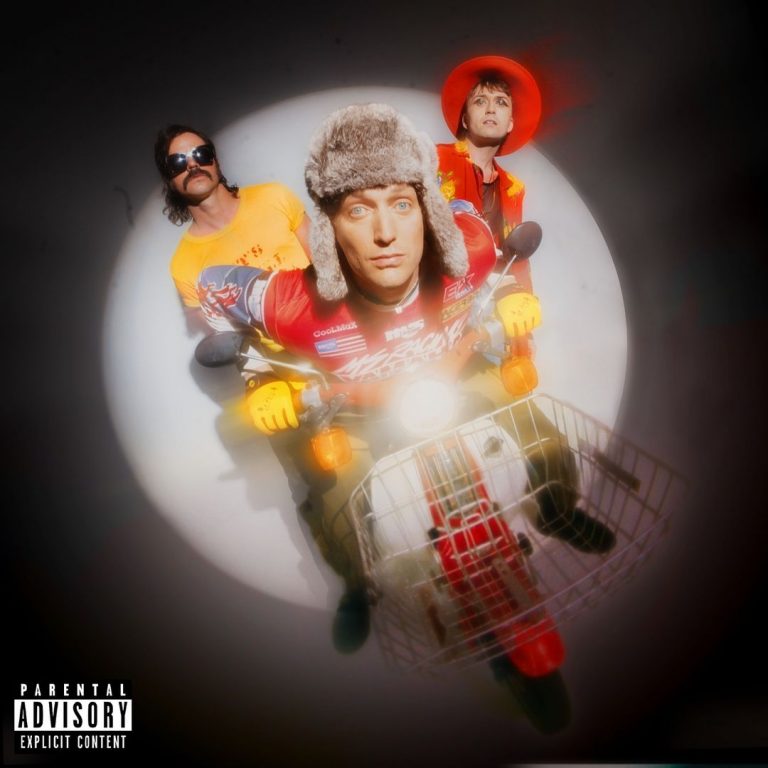Like so many others, The Zolas had their plans to release an album in 2020 scuppered by COVID-19. Instead of just retreating and pushing back the release date, the Vancouver band launched a campaign they called ‘Z Days’ which promised a new single on the second day of each month. Fans of the band could rest happy on getting their Zolas fix (especially since it was back in 2016 they released their last album, the bright and infectious Swooner) as well as plentiful cuts that would appear on their delayed album.
The extra time also brought about a little extra focus for The Zolas into how to shape and sound the album. Inspired by 90s Britpop and described by frontman Zachary Gray as a “21st century heir” to Trainspotting and Baz Luhrmann’s Romeo + Juliet, Come Back To Life borrows generously from the the era of Definitely Maybe and Screamadelica. There are smears of Oasis and nostalgic hat tips (and psychedelic waves) to the Happy Mondays across the album, but Gray and his band never get too lost trying to recreate the past.
If anything, props have to be given to Gray (and new bandmates, bassist Dwight Abel and drummer Cody Hiles, filling the gap left by departed keyboardist Tom Dobrzanski): they are a pretty convincing replica of the inspiring era. “Miles Away” jangles pleasingly as Gray ushers you to “lean back / don’t worry ’bout the feedback”, while “Let It Scare You” has a blissful summery air about it, channelling nostalgia from its echoey vocals through to its little hits of glockenspiel. If they were released 25 years ago, then tracks like these could have easily found an audience.
Elsewhere, they sound amazingly convincing as another band who made their name trying to replicate this era, namely Kasabian. Opening track “Violence On This Planet” cynically swaggers while “I Feel The Transition”‘s throbbing bass charges along as Gray takes on the topic of wealth disparity. Give either of these tracks that radio-ready shine on the trip hop beats and up the fuzz on the bass a little and you could have a track taken from somewhere between Kasabian and West Ryder Pauper Lunatic Asylum, if not just something ready to soundtrack a sequence of lads boasting their way down a street in a Guy Ritchie movie.
Gray’s old habits don’t die easily though, and if there’s a past he seems fond of recreating then it’s the flashy strut of Swooner. He has a certain way of inflecting his voice in the final bars of each of his lines, like he’s directing your attention to a particular clever word. It’s most evident on “Yung Dicaprio”, which manages to fuse together a bleary 90s “la la la” rush with that LA-like wearied glimmer; it sounds like two songs stuck together, but the trio do make it work. “Energy Czar”, on the other hand, has plenty of likeable features with its backing vocal touches in the chorus and stylish preppy guitar sound, but it also sounds like a rehash of familiar territory.
Where the album does excite is when Gray steps that bit more out of his comfort zone. Sometimes it’s a little feature, like on “PrEP” where there’s a noticeably emotional snarl in his voice as he shouts “I wanna scream until I burst,” addressing the HIV epidemic of the 1980s over thick, chugging bass. “Reality Winner” is a welcome instrumental turn that sounds equal parts indebted to trip-hop rave streaks from the Prodigy as it does to a modern dubstep pioneer like Burial. “Another Dimension” gets locked and lost in a gritty groove, but an elongated verse from Cadence Weapon is a highlight and surprise – it’s only a shame it doesn’t go on longer, especially when he starts to hit his lines against the snare with a pointed viciousness.
Final track “Wreck Beach/Totem Park” is also worth a shoutout, not just for broaching the difficult topic of Canada’s deplorable treatment of its First Nations, but also in how it manages to do it through a personal lens. “Songs I love to sing reveal themselves as requiems,” Gray carefully offers at one point as hazy synth chords blear in and out of view, like a fuzzy childhood memory coming to the front of your mind. The rise of the chorus is sweet and wistful (even though it’s tinged with darkness), but Gray sounds he’s retreating away from bleeding an intense emotional peak out of the song, like he’s aware this isn’t his area to broach. He’s reminiscing with a more informed mind, remembering fondly but with fuller context of life around him.
Like the album’s opening track, the closing “Wreck Beach/Totem Park” takes some six and a half minutes to spread out and explore the terrain, and it’s musical ventures like this that make Come Back To Life that few steps above the band’s previous efforts. The tone feels less pandering and hollow, and there actually sounds like there’s real weight and meaning behind some of Gray’s lyrics for once (which, thanks to the less airbrushed production, aren’t riding front and centre). While the album’s not without some clunky moments (mostly around the middle) and at points just feels like a continuation of what came before, Come Back To Life does an admirable job of balancing 90s sentimentality and the band’s own signature approach to writing. It’s a hard task to look backwards and forwards at the same time, but The Zolas do a pretty good job of it here.

